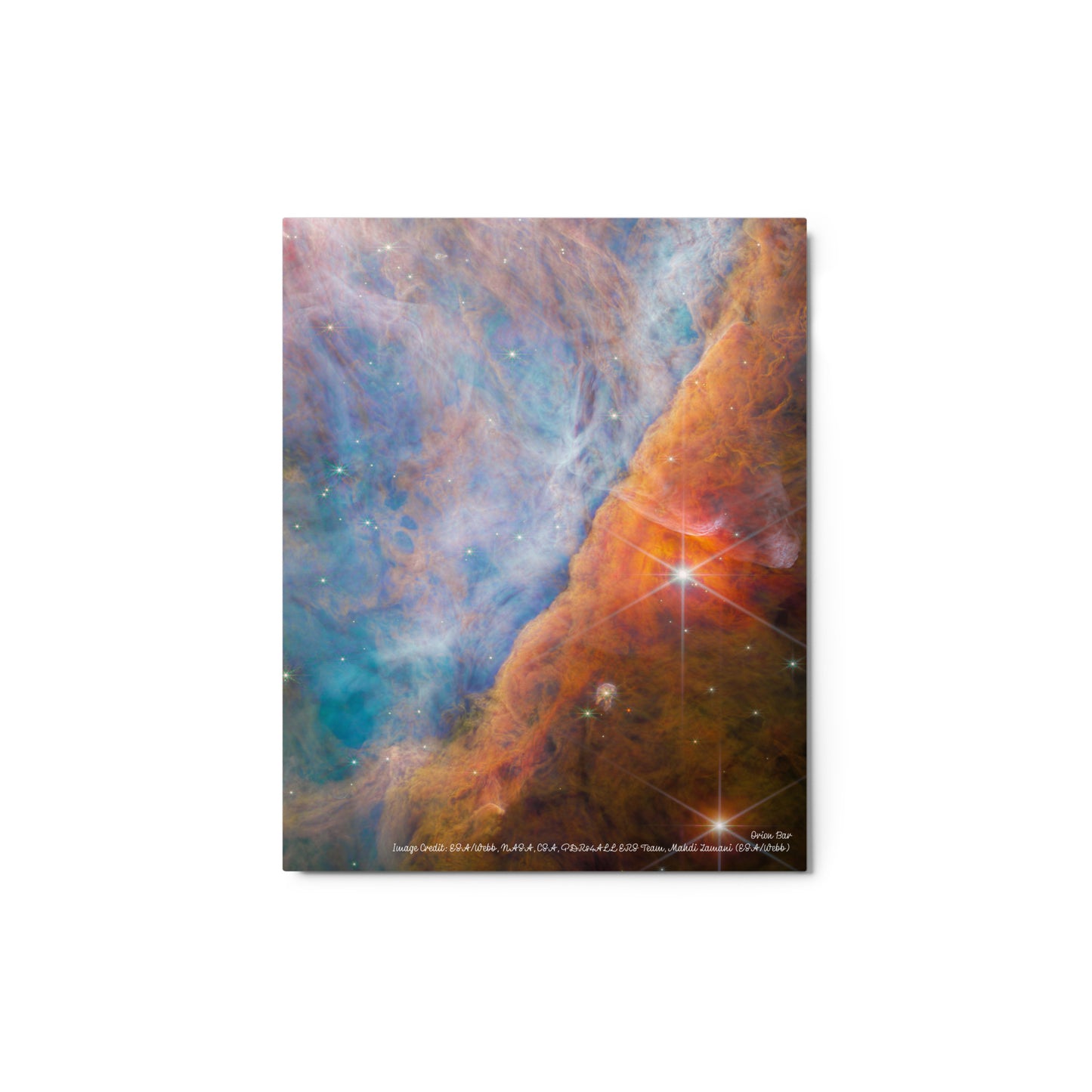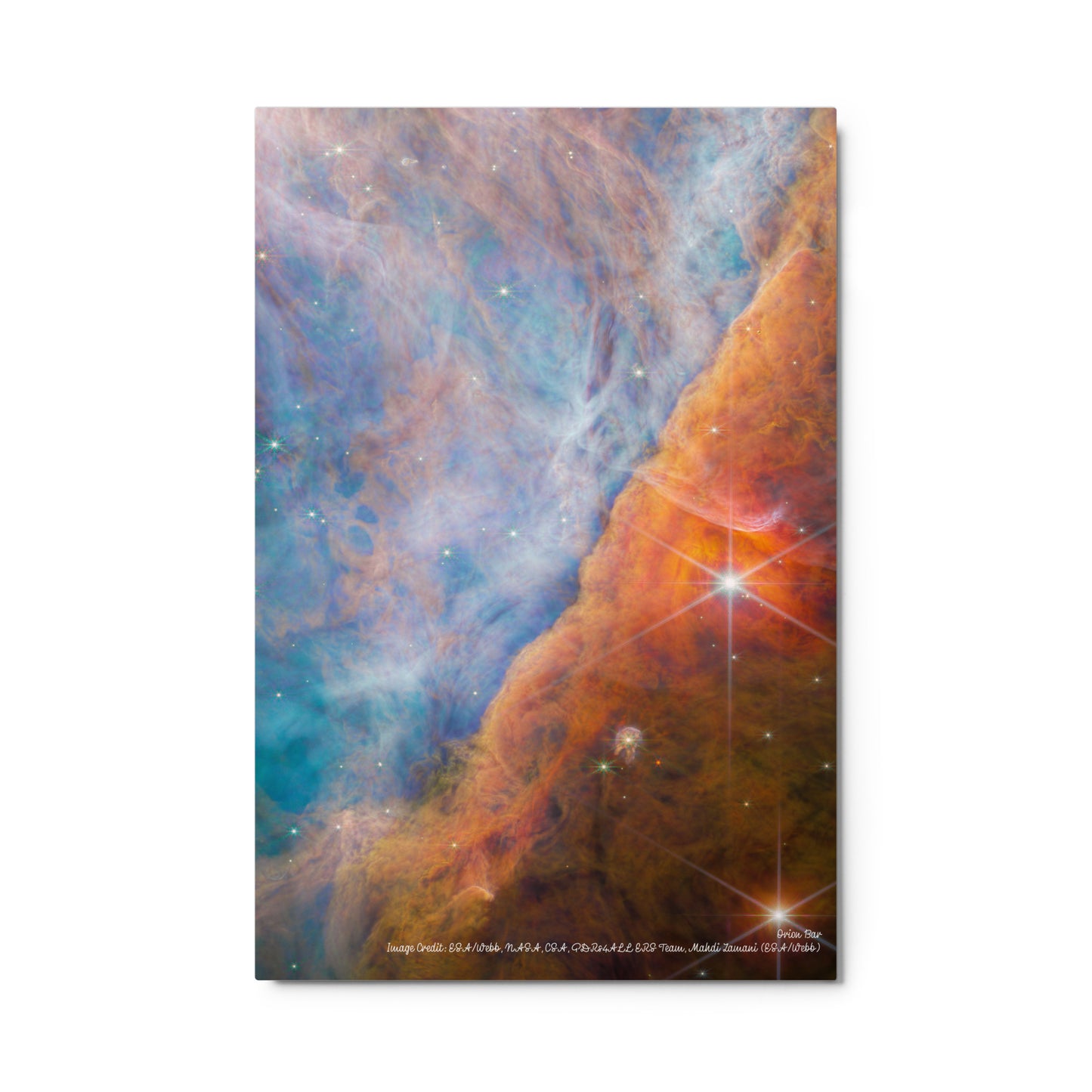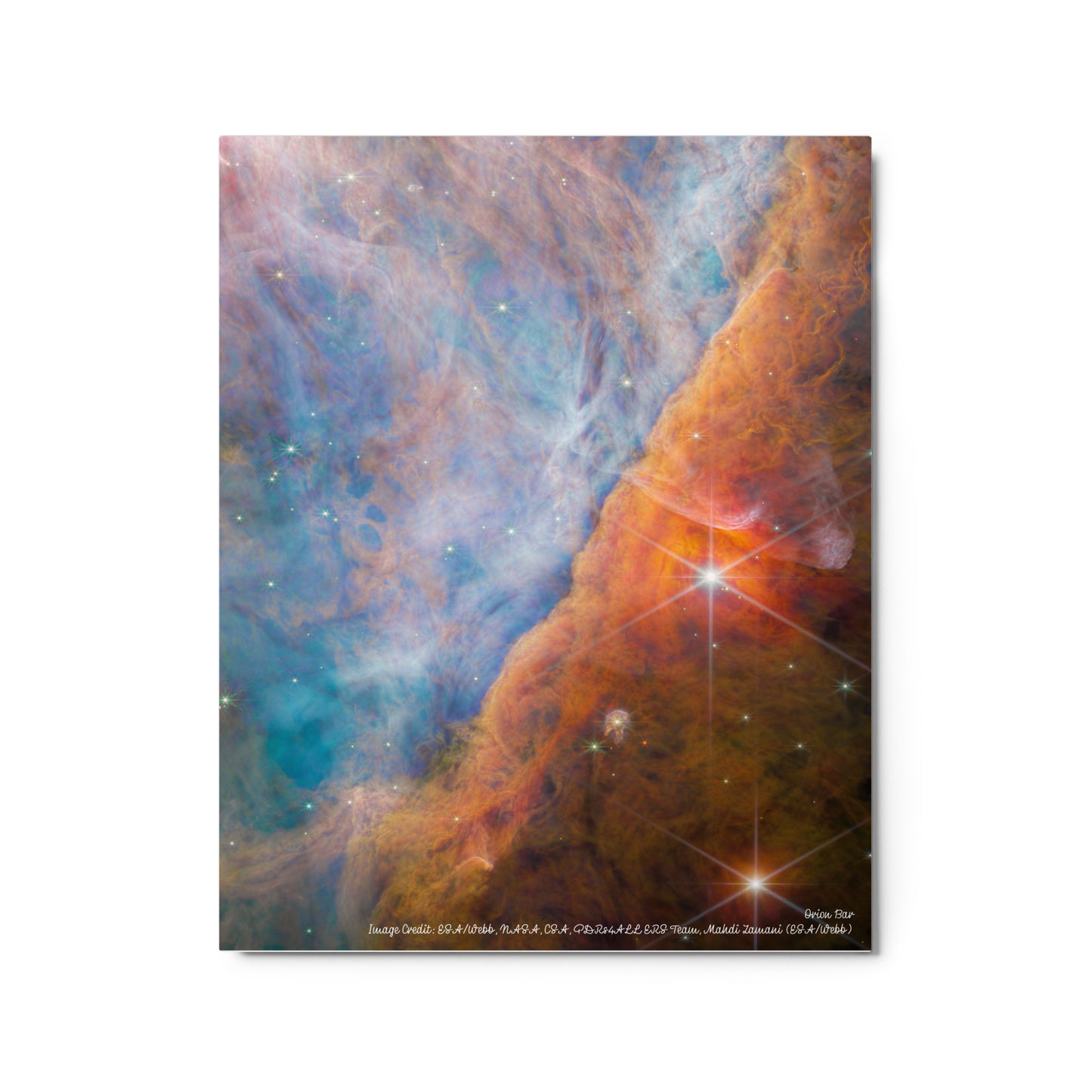Orion Bar, Metal prints
Orion Bar, Metal prints
Couldn't load pickup availability
Bring the Universe Home: High-Quality Metal Prints
Transform your space with stunning cosmic wonders. These high-quality metal prints showcase the universe's vibrant colors and intricate details in a way that has never been seen before.
Lasting Visions of the Cosmos:
Scratch- and Fade-Resistant: Crafted with a durable aluminum surface, these prints withstand everyday wear and tear.
Exceptional Vibrancy: The meticulous printing process utilizes the metal's reflective properties to create stunningly vivid colors that bring the cosmos to life.
Easy to Care For: Simply wipe clean with a damp cloth, making them ideal for high-traffic areas.
Multiple Sizes Available: Find the perfect fit for your space, whether you're seeking a captivating focal point or a mesmerizing gallery wall.
Modern Elegance:
These metal prints boast a sleek and contemporary aesthetic, a touch of sophistication. The artwork appears almost luminescent against the wall, adding a unique dimension to your décor.
Orion Bar:
This image, taken by Webb's NIRCam (Near-Infrared Camera), shows a part of the Orion Nebula known as the Orion Bar. It is a region where energetic ultraviolet light from the Trapezium Cluster—located off the upper-left corner—interacts with dense molecular clouds. The energy of the stellar radiation is slowly eroding the Orion Bar, and this has a profound effect on the molecules and chemistry in the protoplanetary disks that have formed around newborn stars here.
Within this image lies a young star system known as d203-506, which has a protoplanetary disk. Astronomers used Webb to detect a carbon molecule known as methyl cation in that disk for the first time. That molecule is essential because it aids the formation of more complex carbon-based molecules.
Constellation: Orion
Dimensions: 2.08 x 2.31 arcminutes
Distance: 1,350 light-years
Image Credit: ESA/Webb, NASA, CSA, PDRs4ALL ERS Team, Mahdi Zamani (ESA/Webb)
Share




